A law that would have removed abortion from the NSW Crimes Act was last week voted down by the state's parliament, where it garnered support from just a third of MPs.
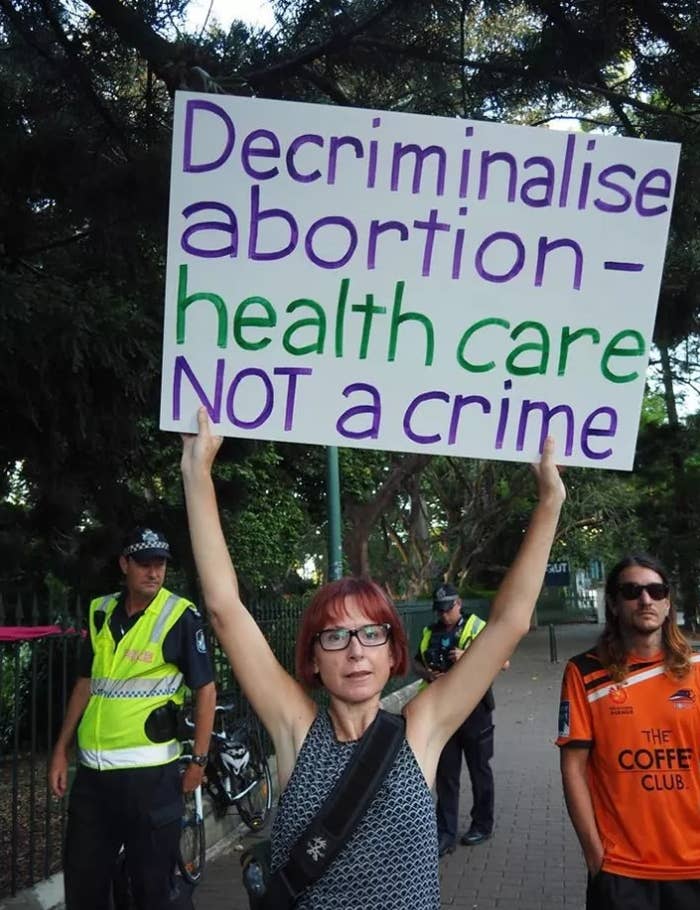
All members of the NSW Liberal-National coalition voted against the legislation, which would also have established safe access zones around hospitals and clinics where the procedure is available.
In February, a similar bill was withdrawn from Queensland's parliament the day before it was due to be debated after every member of that state's Liberal-National Party vowed to vote against it.
Here is how decriminalisation similarly failed in both states:
The push was introduced without the support of a major party.
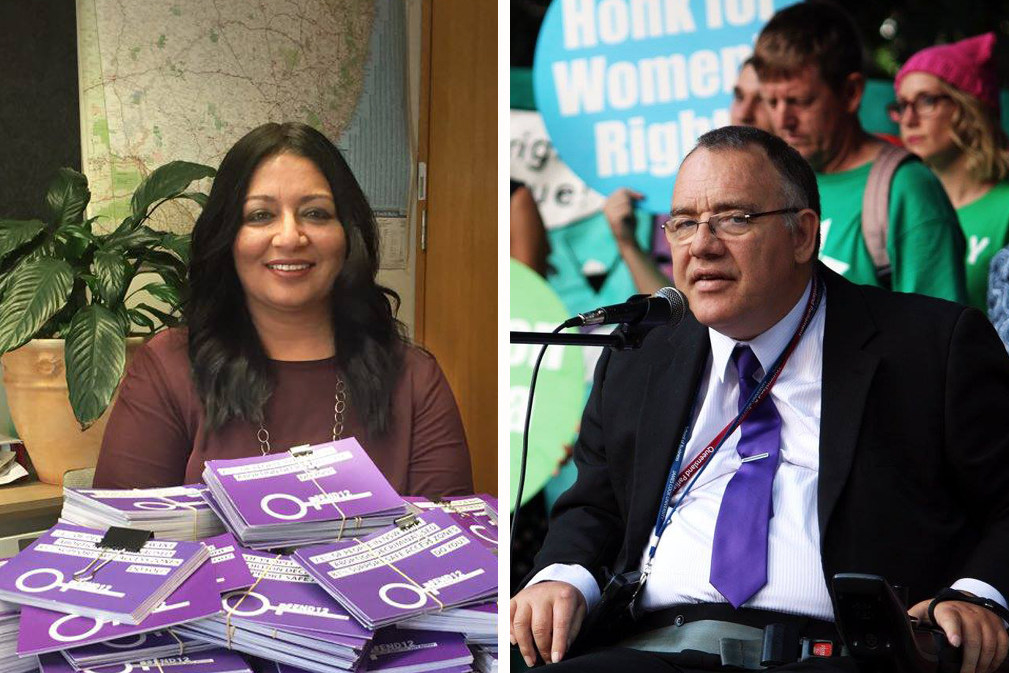
NSW Greens MP Mehreen Faruqi introduced a bill to decriminalise abortion, enact safe access zones and force doctors who conscientiously object to the procedure to refer a patient to someone who doesn't, in August last year, with the support of her four party colleagues.
The same month, a bill to decriminalise abortion introduced by independent Cairns MP and Labor party defector Rob Pyne was rejected by a Queensland parliamentary committee after a series of public hearings and more than 1,400 submissions from concerned individuals, religious MPs and passionate healthcare professionals.
Pyne then introduced a second bill to address the committee's concerns which also failed.
In both states, the legislation did not have widespread cross party support.
The campaigns against the bills were defined by the issue of later term abortions
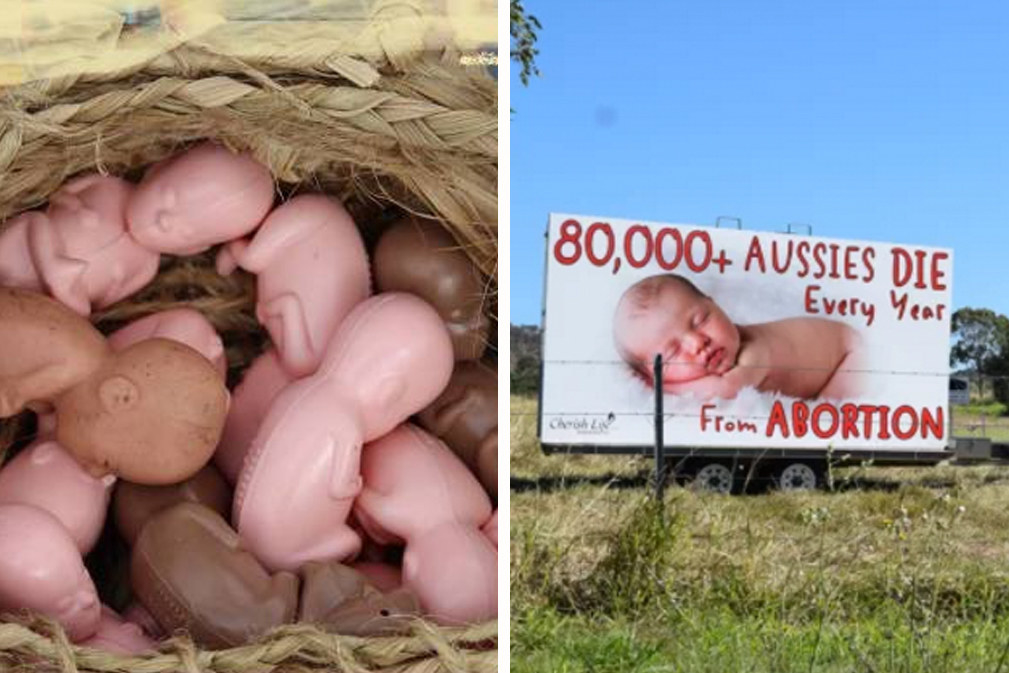
According to the most recent figures from the Australian Institute of Health and Welfare, 0.7% of abortions in Australia were carried out at or after 20 weeks. Most (94.6%) were performed before 13 weeks of gestation.
Nonetheless the arguments against the bills in both states centred around the issue of abortions after the second and even third trimesters, falsely arguing that the decriminalisation would somehow remove current protections for fetuses.
In Queensland, anti-abortion group Cherish Life launched a raft of radio, newspaper and Facebook advertisements which claimed the laws would allow "abortion at ANY stage of pregnancy, for ANY reason".
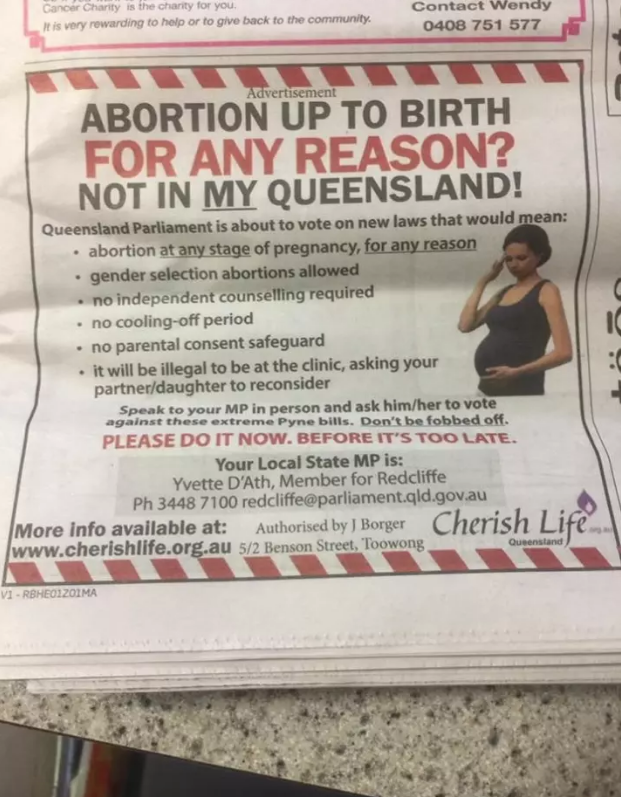
"This new law would allow the abortion of an entirely healthy baby of an entirely healthy woman," claimed one of the radio advertisements, which were broadcast across Queensland in the lead-up to the parliamentary debate.
While Pyne's first bill did not prescribe a gestational limit on when abortions would be lawful, his second, amended bill stated a woman more than 24 weeks into a pregnancy could only have an abortion if her doctors believed continuing the pregnancy would involve greater risk of physical or mental injury than if it was terminated.
"About 90% of abortions happen under 12 weeks and most of those are before nine weeks," Queensland obstetrician and maternal-fetal medicine specialist Dr Carol Portmann said.
"If there is a termination happening after 24 weeks it is going to be a situation of significant disability, most likely resulting in no quality of life, or a short life [for the baby] – usually brain problems or heart problems that are deemed irreparable."
She said later term abortions were rare and only occurred because of a devastating fetal diagnosis, maternal health complications or difficulty in accessing an abortion provider.
"The idea that anyone could have a late term abortion in Queensland for any reason doesn't actually sit with the way it works, because there isn't a private clinic that can actually do a termination for a person after 20 weeks, so it automatically happens in a hospital.
"For fetal abnormalities like that, there is an ethics process in which the patient is seen by a couple of doctors who explain what effect it will have on their mental health, and a whole committee has to sign off on it."
The Australian Christian Lobby described Pyne's bill as an "abortion-to-birth" law.
Anti-abortion Queensland MP Fiona Simpson said decriminalisation legislation would legalise “the killing of unborn children up until the point of birth”. Cleveland MP Mark Robinson said it was "the most dangerous abortion law in the Western world".
In NSW, the Australian Christian Lobby and the Catholic Archbishop of Sydney have echoed arguments made by Queensland religious organisations.
The lobby's NSW director Mark Makowiecki wrote on the ACL's website that Faruqi's bill would "permit abortion till birth, remove the conscience rights of doctors, and prevent prayer vigils and sidewalk counselling near abortion clinics".
The bill provided no gestational limits on when the procedure could be performed but services for abortion are currently available up to 20 weeks of pregnancy.
The Catholic Archbishop of Sydney Anthony Fisher called on Catholics in NSW to take "urgent action to protect human life in the state".
"[The law] would make abortion legal, right up until the moment of birth," Bishop said.
Labor MP Greg Donnelly tabled a petition opposing the law, which had been circulated across Sydney's archdiocese, in parliament.
Access for country women was at the centre of the push
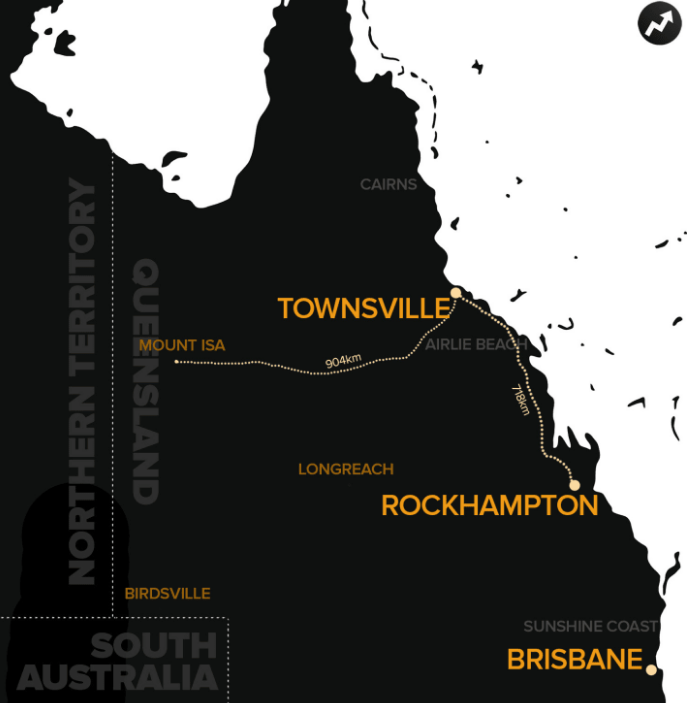
Geographical barriers in accessing a termination featured in submissions to Queensland's parliament, as women had been turned away from hospitals, bought plane tickets to procure an abortion or lived in areas where there was only one doctor who performed abortions.
Faruqi said her own polling showed support for her bill was highest in regional and rural NSW, with 80% supporting decriminalisation and 93% supporting exclusion zones.
"This bill is about access, it is about making access unambiguous but also removing the barriers that keep abortion services privatised and expensive, especially for rural and regional women," Faruqi said.
Doctors rallied behind the legislation.
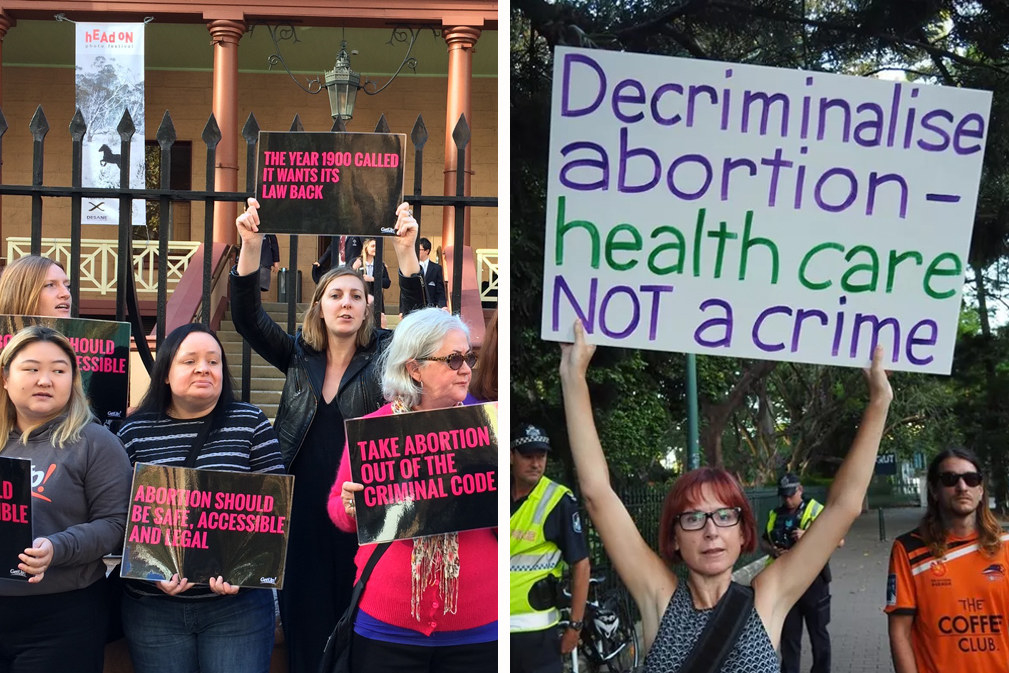
In NSW, a petition signed by more than 300 doctors said the current law only served to "interfere with the practice of medicine", and urged MPs to vote for decriminalisation.
"[Doctors] have been working around and dodging the law and manipulating things so that our patients get the care they need, but we are all aware that officially abortion is illegal and it is talked about in hushed tones," Dr Philippa Ramsay, who specialises in gynaecological ultrasounds and prenatal diagnosis, told BuzzFeed News.
"Doctors are unwilling to be known as a doctor who performs terminations."
Many Queensland doctors were involved in campaigning efforts for Pyne's bill but once it failed,19 gynaecologists, obstetricians, surgeons and GPs, who asked not to be named "for reasons of their own safety", called on their government to reform abortion law reform sooner than promised.
"Those of us who provide early surgical and medical abortions... are often confronted by women in very difficult social, domestic and medical situations who need our help in other aspects of their health and social care as well as the provision of abortion," the doctors wrote.
Not a single member of the Liberal-National coalitions in either state voted for decriminalisation.
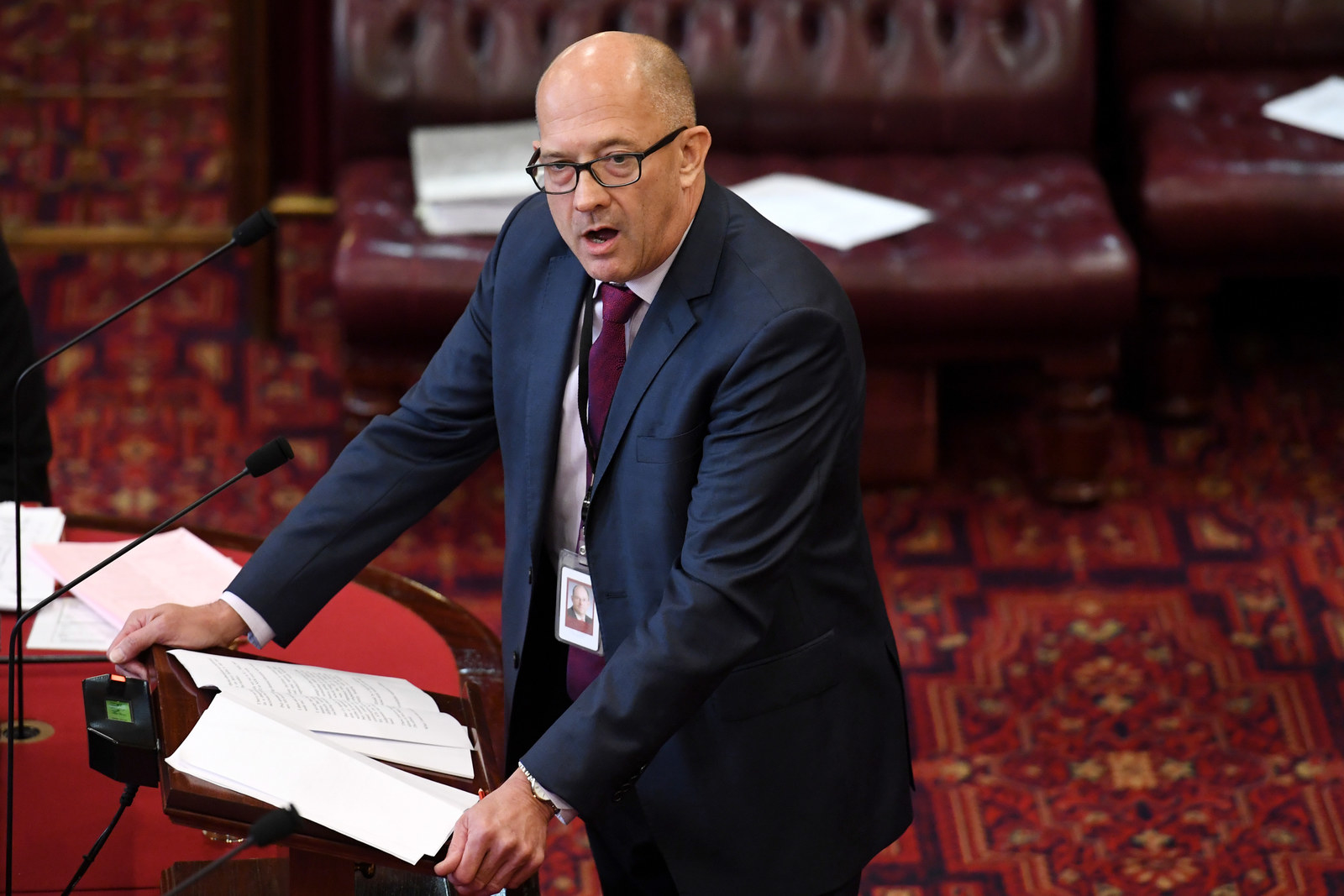
The chance of removing abortion from Queensland's Criminal Code all but vanished when the state's opposition leader Tim Nicholls announced that "every single member" of his Liberal-National Party would vote down proposed changes to the law.
Pyne then withdrew the bill to avoid its imminent failure in the chamber.
Labor MPs speculated the decision to vote en masse against the bill was due to one member, MP Mark Robinson, threatening to defect to One Nation if his party didn't vote as a group against the bill to decriminalise abortion. Robinson denied this claim.
In NSW all LNP members used their conscience vote to oppose Faruqi's bill.
The bills were characterised as policy-on-the-run by political opponents.
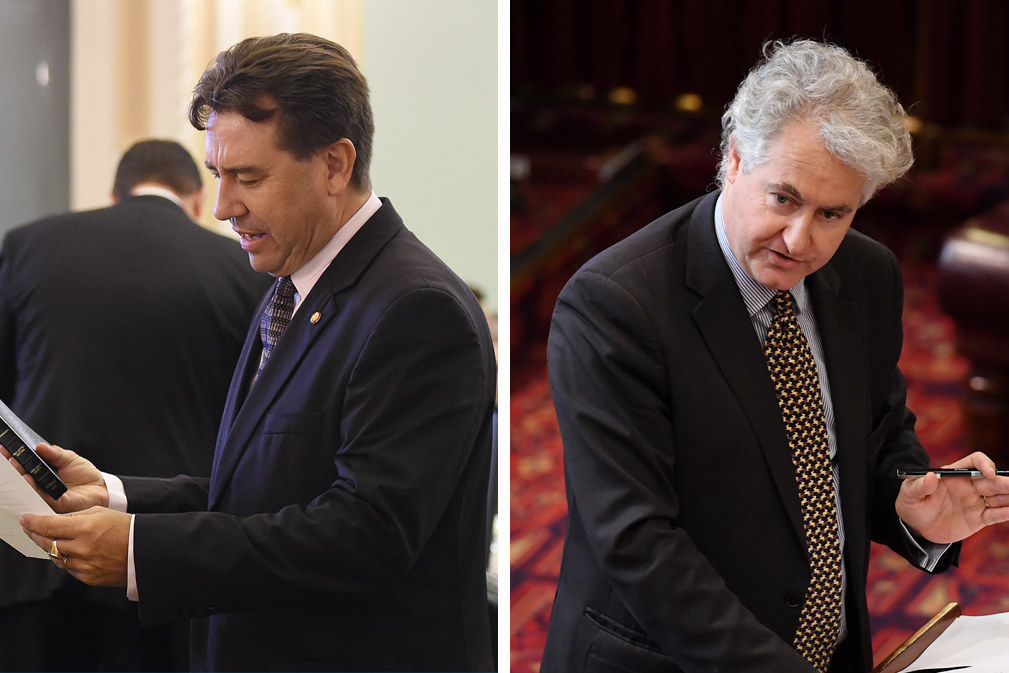
In Queensland, Pyne was criticised for his first bill, which was rejected by a parliamentary committee as it removed abortion from the Criminal Code but did not enforce gestational limits.
He was forced to introduce a second bill which addressed these concerns.
Experts told MPs that if the second bill passed but the first did not, it could actually make it more difficult in Queensland for women to have a termination before 24 weeks gestation than after 24 weeks.
“I do have some concerns about the second bill so I will have to have a look at that at the same time,” the state's premier Annastacia Palaszczuk said.
In NSW, the shadow health minister Walt Secord ripped into Faruqi during the debate over her bill.
"My vote for the bill should not and cannot be seen as support for the manner in which it has been introduced by Faruqi," Secord said.
"Make no mistake she has created a flawed bill with a scope of unintended consequences."
He said he had not been properly consulted over the two year development of the bill, and said the criminality in having an abortion had been misrepresented.
The community mobilisation forced the Labor Party in both states to address the issue.
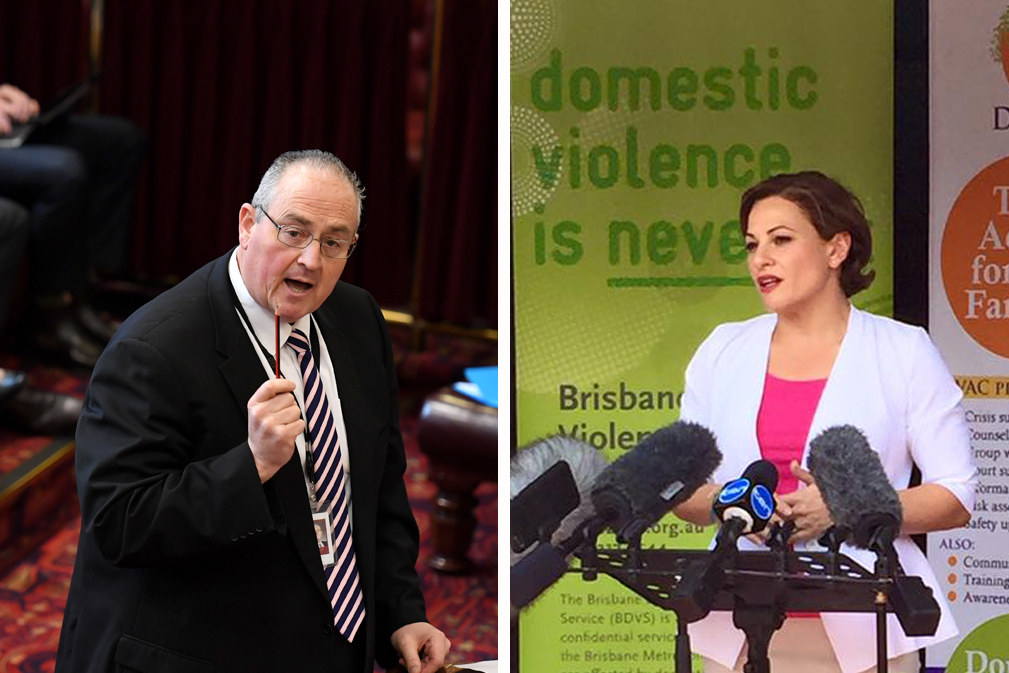
The morning after Pyne's bills were withdrawn from the Queensland Parliament, he stepped out for a press conference with pro-choice MP and deputy premier Jackie Trad to announce that the state's Labor government would "modernise" abortion laws if re-elected, pending advice from the Queensland Law Reform Commission.
"The Queensland Law Reform Commission recommendations will be the basis for legislation the government will introduce to parliament for debate," the Palaszczuk government said in a statement.
Faruqi's push put the issue of abortion decriminalisation on Labor's agenda in NSW.
NSW Labor MP Adam Searle vowed to "carry on the conversation" about the decriminalisation of abortion with a cross-party working group.
Another Labor MP who voted for the bill, Lynda Voltz, said: "Hopefully, in the future it will not be controversial for us to introduce a bill into parliament to decriminalise abortion."
